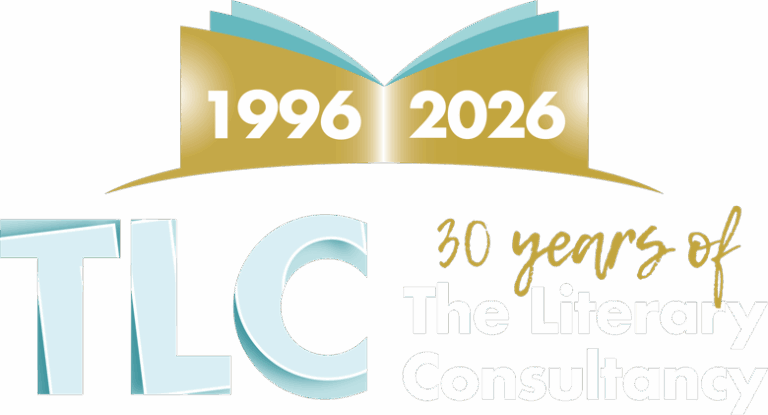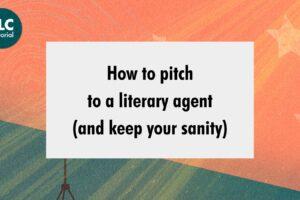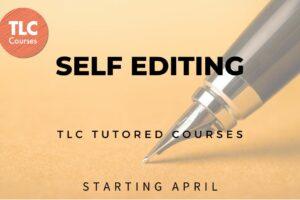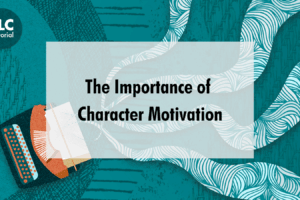Pitching work to literary agents can feel overwhelming, and complicated. Here, we have gathered our top tips on how to pitch to a literary agent, whilst preserving your sense of sanity and wellbeing.
Always read the guidelines
Each agent and each agency will have particular guidelines and they may vary. Most will ask for a covering letter, a synopsis, and the first three chapters or first 10-15,000 words. Some agents will post their reading preferences into an agent page on the agency website, or issue call-outs for particular kinds of work at particular times. Some only read work submitted within particular submissions periods, outside of which they will delete any submitted work. Always, always check guidelines before submitting.
Submit only complete work, and don’t send the first draft
Unless an agent has explicitly said they are open to submissions of ‘partials’ or extracts of work, always ensure the work you are submitting is finished. By which we don’t mean just complete, but also as thoroughly edited as you can get it, either with help through workshops, courses or professional assessment, or by carefully going through a few drafts yourself, giving yourself enough time in between to allow for the necessary objective distance required to push the work to the next level. It can be frustrating for an agent to call in a full manuscript from a writer, only for the writer to write back explaining it isn’t ready yet. An agent can certainly spot a talented writer from the first few pages, but it’s harder to tell whether a story will hold together from end to end. Agents’ time is limited, and though many offer crucial editorial guidance to their writers, they cannot be relied upon to do the developmental work you have a responsibility to take care of as a writer. You also often only have one shot at submitting to agents, so don’t scupper your chances by sending an early draft that in your heart of hearts you know you could have worked on.
Submit to the right agent(s)
This sounds obvious, but more often than not, writers will make the mistake of roundrobin emailing lots of agents without checking who they are. Not only is this not terribly good practice, it also completely de-personalises your approach and puts you at risk of submitting to agents who simply don’t represent work like yours. Literary agents are, ultimately, lovers of books, and champions of writers – they will be delighted to hear you have chosen to approach them specifically with your work, and interested to know why. Each agent will also have slightly different tastes and many agents are very active online, or making guest appearances at festivals and workshops and masterclasses, where you can hear from them directly about what they are looking for. Take some time to look at their lists to see who else they represent and whether you can imagine yourself sitting alongside these authors. Some authors also have
genre specialisms, so always check you aren’t submitting something they simply don’t represent.
Be savvy about submissions; and protect yourself
Always check that the agency you are submitting to is a legitimate outfit. Check their list of authors and publication successes, and see if they are signed up to the AAA (Association of Authors’ Agents). No agent should charge you money to read your work, nor to represent you. It is standard practice for agents to operate on commission so do expect a contract outlining their reasonable cut on your earnings through their brokering of deals for you, usually 10-20%. There may also be reasonable print/admin fees involved, but all of this should be clearly outlined in a contract should you be offered representation. Simultaneous submissions are advised when sending out your own work, as agents are extremely busy and can take anywhere between a few weeks and several months to respond, but do be fair and clear if you are sending to more than one agent. For your peace of mind, try to avoid submitting to too many agents as if rejections do come (and they are normal) it can be very difficult to receive several at the same time. You are submitting work that you love and have worked hard on, and you need to protect yourself, too.
Work hard on the opening, but don’t let the rest slide
A common issue we see at TLC is openings either simply not being strong enough to hook an agent (too much exposition, not enough story, not enough ignition to promise necessary narrative momentum etc, all things our professional readers can pick out) or, at the other end of the scale, an over-worked opening with the quality very quickly tailing off. Possibly this is the fault of a current heavy creative writing industry emphasis on ‘killer openings’ with a proliferation of classes and workshops focussing on just the opening pages of a manuscript to better your chances of success submitting to agents and to competitions. It’s true that these pages are absolutely crucial, as it is often within only a few pages that a literary agent will make a decision about whether to call in a full manuscript or not, but the problem is that there can then be a tailing-off of the author’s attention, and the proportions begin to feel strange, so that the MS no longer coheres in the way it needs to to show an agent that a reader picking this up off a bookshelf will be in sure hands, with the promise of a story delivered assuredly to the end with equal editorial attention to each section of the work.
Treat your submission as a business pitch
The initial submission to an agent has the tricky task of carrying some of the flavour of the work you are submitting – your unique style and voice – whilst at the same time needing to come over as a set of professional documents that show you have the authority of conviction that writers seeking so-called traditional publication need. You do not need to be a professional marketeer to be a successful author (and what the measure of ‘success’ is for writers is a debate for another article: suffice to say we believe that it isn’t, in fact, simply the fact of publication), but you do need to know how to pitch your book if you are aiming to attract the support of an agent and eventually a deal with a publisher. Your synopsis should be no longer than one page -it does not need to be double-spaced like the MS – and your covering letter should be around the same length, pointing out immediately what the book is you are writing in terms of its plot (what happens), its story (to whom) and theme (what is it about). All three should inform your ‘pitch’. You should also consider the genre your text most naturally falls into, and if you are going to include some comparison titles, try to ensure they are contemporary and well thought-out: think about the readers, and if they enjoyed X and Y that they might like your book. Outline why. Remember, an agent needs to be able to pitch your book clearly to an editor, who will then pitch the book to marketing, publicity and sales, who then pitch to distributors, who pitch to retailers, who pitch to readers. Also consider that if you find it difficult to distil your book into a simple paragraph, and if you are struggling with a synopsis, you might need to re-visit the text. They are very difficult to write so don’t worry if you don’t ‘get it’ first time, but sometimes this can point to a problem with your plot. Be attentive to this, and willing and ready to revise further.
Protect your energy
At any stage of the process, have a check in with yourself and your energy levels. What can you handle, what feels fruitful, what serves you? If you are feeling resilient, perhaps this is the moment to be brave and send your next batch of submissions. Feeling less resilient? Make sure you keep email notifications switched off so you don’t accidentally read something that might dishearten you (and if it’s good news, don’t worry, it will still be there tomorrow!). Writing can often feel like an extension of ourselves, and while it’s common sense to understand that if we get knock-backs, it’s the work that gets a ‘no thank you’, not us – but in reality, it can be impossible not to feel vulnerable, or hurt, or exposed. These are all natural feelings. You don’t need to be a superhero to be a writer, but you do need to be self-aware, and make sure you’re building proper self care into your practice. Sometimes, that means making sure you’re doing things that give you good energy, so that you can preserve the joy in the writing process. Remember, you already are a writer. You’ve got this.
…and remember, submitting to agents is just one of a plethora of options available to the
modernday writer. The ways of reaching readers are as various, and we’re delighted to have
supported many of our writers onward through interesting pathways; self-publishing well
and ethically, submitting directly to innovative or subject-niche small presses, setting up
websites, creating art books, making work into performance, etc. These are all valid
outcomes. As is deciding that the writing is yours and yours alone; that too is valid.
Read about TLC’s manuscript assessment service here, or our Submission Package Report
service here.
This is an updated version of a resource we created for our Being A Writer membership community. At Being A Writer our aim is create healthier, happier writing communities. Find out more and join us here.








